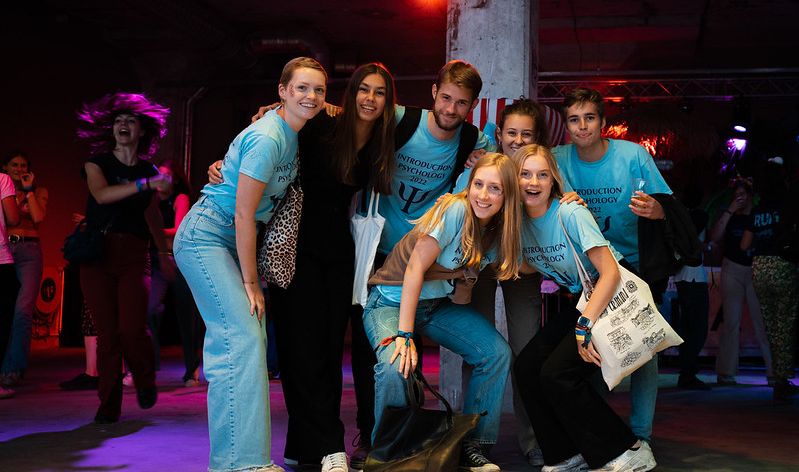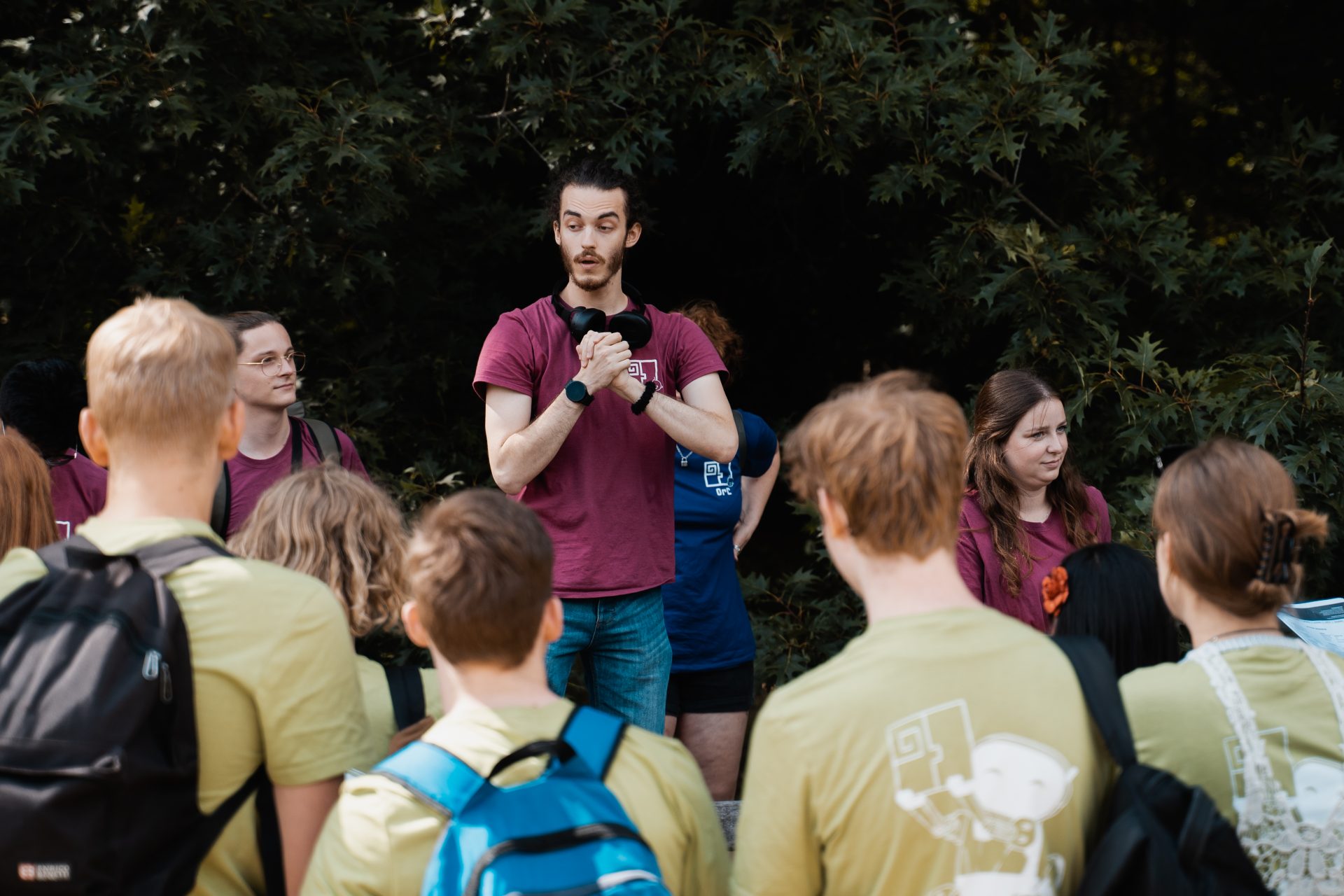‘Dutch people tend to group together, just like internationals’
-
 Members of study association SPiN during introduction week. Photo: Johannes Fiebig
Members of study association SPiN during introduction week. Photo: Johannes Fiebig
As part of the renewed internationalisation policy that was introduced in 2018, multiple study programmes at Radboud University introduced English tracks. Almost five years later, the changes still pose a challenge for the programmes’ study associations.
Now that Radboud University offers more and more English study programmes, study associations incorporate an increasing number of foreign students. That is not always easy, three board members observe. In spite of the internationalisation, the number of Dutch members usually far outweighs the number of international members, and associations tend to break down into smaller groups. ‘Catering to two sides, Dutch and international, is a balancing act’, says Rinke Angevaare (21), the GSV board member for internal affairs.
Internationalisation policy
Over the last five years, Radboud University has been recruiting international students and staff members, built international connections and cooperations, and developed study programmes in English as well as Dutch. This is in line with the internationalisation policy that the university introduced in 2018.
German treasurers
The number of international students joining an association might not always be indicative of how international an association really is. The Psychology association SPiN has a lot of general members, many of whom are international students. Only 30 per cent of active members are internationals, however, and a large portion of those internationals are German.
‘The last four treasurers have been Germans so there is a running joke that people who deal with numbers are always German,’ says SPiN board member Jana Schneider (21, German). According to Schneider, however, the dominance of Germans does not necessarily influence the internationalisation process. She thinks it can benefit the organisation of the association: ‘I think it is positive that Germans are also in the board because the language barrier between Dutch and German is not that big.’
‘It is difficult to internationalise further and faster’
CognAC, the study association representing the English-taught Artificial Intelligence programme, has attracted more-or-less the same percentage of internationals as the study itself has. ‘I think at the moment about 25 to 30 per cent of our members are internationals, mainly Eastern Europeans,’ says CognAC board member Olivier Timmermans (21). While all CognAC committees are open to internationals, the association has also introduced an International Committee, which, so far, is mainly aiming to introduce international Artificial Intelligence students to Dutch culture and integrating them.

A similar trend is also visible in the GSV, the joint study association for the Dutch-taught History and the 2019-introduced English-taught Comparative European History (CEH) track. ‘As board, we are aiming for inclusivity,’ says GSV board member Rinke Angevaare. That isn’t always easy: ‘The CEH group is getting bigger, but it is still pretty small in comparison to the Dutch track. So, the two sides are quite uneven, and because of that it is very difficult to internationalise further and faster.’
Grouping
Schneider points out that internationalisation is not something that will happen just because you aim for it. Dutch and international mingling might not always work out as planned. ‘Dutch people tend to group together, just like internationals tend to group together most of the time,’ explains Timmermans.
Such grouping can lead to situations in which Dutch students switch back to talking in Dutch out of habit, even at events that are organized in English. That is also why Angevaare and others think that a bigger number of internationals participating at events and in committees can lead to more inclusion. The expectation is that Dutch students will more easily and willingly switch to speaking English when internationals are more visible.
‘With activities being in person again, more people are open to join an association’
According to Timmermans, Angevaare and Schneider, the Covid years have proven to be a bit of a setback when it comes to internationalisation. ‘I think the students who started in 2020 or 2021 – both Dutch and international – have a bigger disconnect from the association than students of other years,’ says Angevaare.
Schneider adds that the change back to the normal rhythm has helped a lot: ‘With activities being in person again, more people are open to join an association and there are more opportunities for interacting.’



